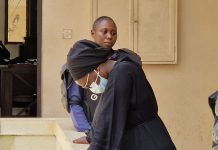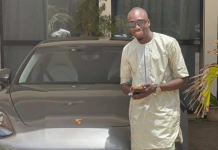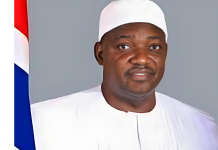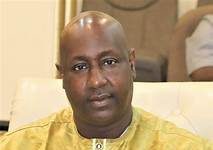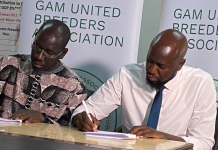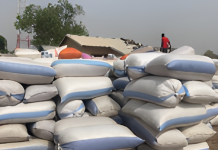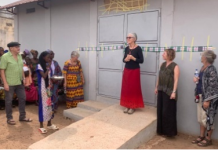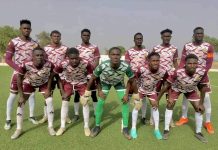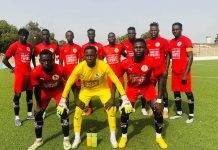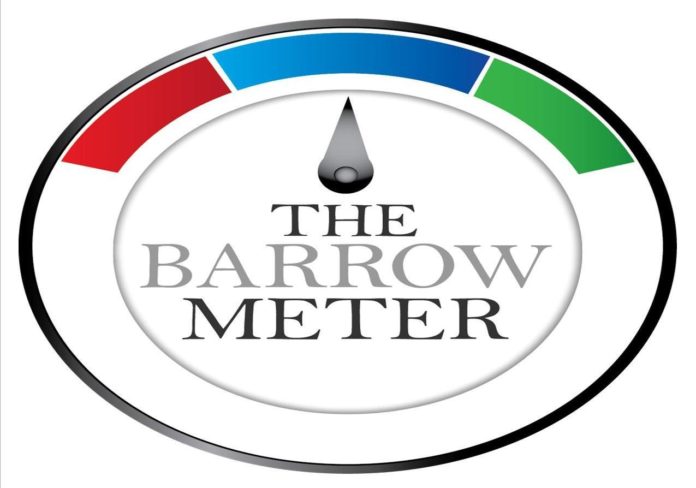Theme: Accountability, Transparency and Good Governance: A New Democracy
Mr Chairman, distinguish ladies and gentlemen,
My name is Margaret Keita. I started working in the Civil Service right after high school and obtained my qualifications whilst in Government service. I was appointed Assistant Accountant General in 1992 and in 1993, became the Deputy Accountant General and the Accountant General designate. After the military coup I was transferred to the National Investment Promotion Authority as Deputy Chief Executive and Financial Controller. I was appointed Accountant General in 1996. I opted for early retirement in December 2004.
I was appointed Minister of Finance and Economic Affairs a few months later in 2005 and worked in that capacity for about 4 months. At present I am the Founder and Executive Director of Change Agents The Gambia, a body founded for civic education and youth development.
It is an honour to be here today and to speak on the theme – Accountability, Transparency and Good Governance: A New Democracy.
The Barrow meter Programme and other actions of civil society, mostly spearheaded by the youth, show The Gambia’s determination to never again, bear the shackles of dictatorship or oppression, imposed by politicians and people in authority.
We are resolved to live in a State of true democracy. This was demonstrated at that watershed moment when we stood up and cast our ballots to remove a dictator. With those votes, we purchased our freedom and snatched our Country back. we will not let it go yet again.
Democracy
The Barrow meter programme, brings accountability to life in a very special way. Our country is a constitutional democracy. It does not belong to the president alone, neither does it belong to the president more than it belongs to us all. A constitutional democracy, as very aptly put by a very wise man, is government of the people, by the people and for the people.
Citizens own the country equally and in common. As we cannot all lead, we decide who to employ to do the job of leading our other employees in order to achieve our goals. We make this decision by casting ballots to see who the majority wants to hire for this leadership job. It is a paid job, and payment, as for all other jobs in the public service, is made from the hard earned cash of citizens and other residents, collected through taxes, licences and other fees. Every person young or old, employed or unemployed pays taxes as businesses pass on the taxes, fees and licences they pay on to us by factoring them in the price we pay for goods and services.
Government is run with our tax payments and loans taken in our name, which we have to pay for, as well as grants given by others for the benefit of all of us.
The Constitution, the principal law of the land, and other laws as well as regulations and policies clearly state the job of each public employee as well as the authority and power each employee has, beginning with the President and Head of State.
This regulatory framework also provides for our representation in the form of national assembly members we elect and pay to watch over the activities of Government to ensure that Government acts in accordance with the laws and in our best interests.
The job of serving the public is an honourable one if done in accordance with the laws and with integrity.
It is important for us to remember that these are jobs that require certain expertise, skills and knowledge. 2, 3 or 4 people cannot be leaders on an equal footing, that would be chaos. One person must lead and that person has to provide the vision, leadership and direction, so he must have the strength of purpose, character, knowledge and expertise required. When we elect leaders, we must bear this in mind. These are jobs all of which require a certain level of knowledge and expertise as well as energy and a lot of integrity as these jobs are held in trust.
Transparency and Accountability
As we have established that we as a people have decided to live together, owning the land equally and in common, and putting our resources together in a common fund, for our protection, wellbeing, education, prosperity and happiness and that of generations to come, how do we ensure that our leaders carry out their functions as expected and in the best interest of the citizens?
We have the laws regulations and policies, as well as the institutions and the oversight structures, and accountability is amply provided for in this regulatory framework.
However, Systems depend on the people who operate them, and politicians and senior officials can and do override the system for their own selfish interest and for corrupt purposes. Failure to make people accountable for their actions breeds corruption and impunity, hinders development, brings acute poverty, hinders justice and breeds instability.
If we value integrity and strength of character, if we value professionalism and service, we will have systems that are strong and robust. Systems consist of equipment, processes and the human resources that operate the systems.
Without a skilled workforce that is professional and ethical, processes and laws will not safeguard the country’s resources. The past 22- year dictatorial regime in our own country is a classic example.
A robust system will produce accurate and timely information. A good and honest leadership will be open enough to provide the information required to enable citizens to assess whether government activities are being carried out in accordance with policies and laws, without discrimination in any form, and in the best interest of the people.
Citizens have a right to information on how their money is used, where it goes how much and for what purpose. Government has an obligation to provide it.
The openness in providing this information is transparency, and the ability to hold politicians and officials to account is accountability.
Transparency and accountability are key to good governance. People demand transparency in Government activities and accountability for abuses of office, misuse of public resources and corruption.
Employees have to expect that if they do not follow the law in the performance of their duties, sooner or later, the law will take its course.
Senior officers are not messengers. They hold positions of trust and control the country’s resources. Their duty is to safeguard those resources. There is no excuse. There is always a clear choice and you chose the one you make. There are consequences to these choices.
A Country in Transition and Promises Made
We are a nation emerging from dictatorship, in the fragile state of transition. In 1965, on Independence, we chose to become a democracy, as this ensures equity and like treatment for all, irrespective of race, tribe, religion, gender or other discriminatory basis.
However the thirty-year rule of the first Republic, under the PPP, was not free from discrimination and corruption, nor did it do much to alleviate poverty and develop the country. The subsequent administration, Jammeh’s twenty-two-year dictatorship, under the second republic, plundered and committed human rights abuses at levels previously uncharted in this territory.
When we went to the polls in December 2016, we voted to oust Jammeh, Period.
We knew that concerted effort was required to remove an oppressor who had seized our country, claiming all our resources for himself.
We accepted the opportunity offered by the coalition of political parties to put forward an independent candidate who would be neutral.
Promises were made in the form of a manifesto with which they campaigned.
The most significant of these promises include the review of the constitution to institute presidential term limits, the repeal of laws which limit the fundamental freedoms and rights enshrined in the constitution, the review of election laws, A freedom of information Act, as well as to ensure a conducive environment for multi party democracy and a level playing field for all political parties in preparation for the next elections.
To ensure that the presidential candidate was free from conflicts of interest and truly committed to the democratisation process, he promised to serve a 3 year term and not contest as a presidential candidate in the next election. This was necessary for equity among parties and to gain the trust of citizens who would not vote for a party they do not support or a person they do not trust.
I quote the conclusion from the Promise made:
“The Independent Ticket supported by Coalition 2016 aims to create a transitional Coalition Government that would promote tolerance of ethno-linguistic, religious, gender and other diversities in promotion of national unity
We have agreed to put all differences aside to put a transitional government in place that would initiate constitutional, electoral, institutional, administrative and managerial reforms that would make justice guide our action towards the common good and further unify our diverse people to create a democratic system which enables each party to have equal access to the media and seek the mandate of the people in a free, fair and genuine election after a three year transition.”
The Barrow meter ensures that politicians are held to their word. A man is only as good as his word. Promises made to obtain votes cannot be taken lightly.
Distinguished ladies and gentlemen, I thank you for your very kind attention.

